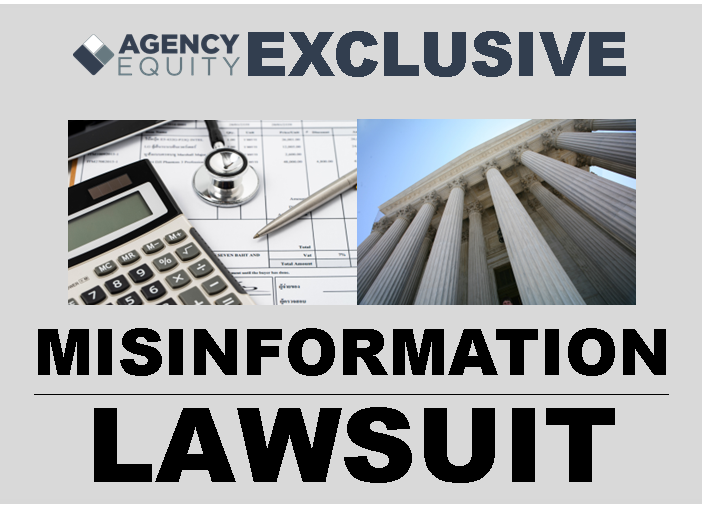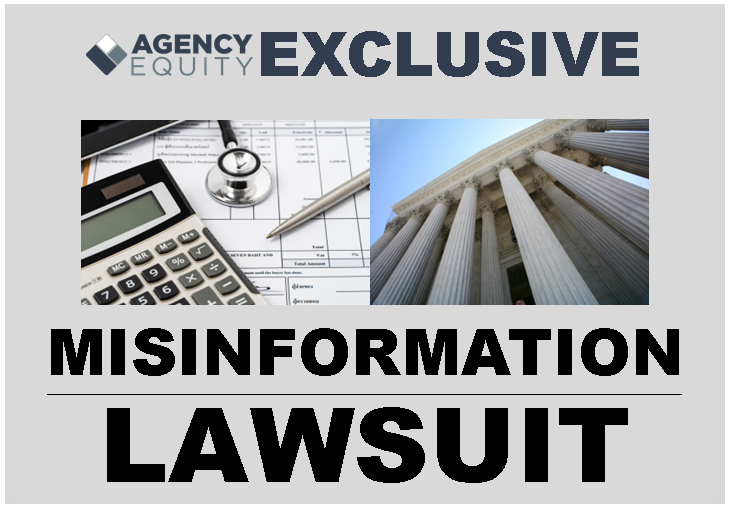
By: AgencyEquity.com
Insurance applications can pose particular errors and omissions liability risks for insurance agents. Agents commonly complete ACORD or other types of applications for their clients because of familiarity with the forms. Trouble can ensue, however, when agents do not have clients review and sign the applications.
A building owner in Brooklyn, New York engaged a local agency to obtain coverage on the property. In May 2016, the agency obtained a commercial property insurance policy from a regional carrier. Renewals were to be issued automatically, but the carrier required updated applications at each renewal.

Separately, a non-profit organization that served people suffering from HIV/AIDS and other health problems made living arrangements for an individual. In August 2018, they entered into an agreement with this individual to provide him with housing for 30% of his monthly income.
In May 2019, the organization signed a lease with the building owner for one of the building’s apartments. This individual was placed in the apartment under his agreement with the organization the year before.
In 2019 and 2020, the applications for the renewal policies asked, “Are any of the habitational units rented to anyone other than individuals on a long-term lease for their exclusive use and that of their immediate families?” According to the trial court’s opinion:
“It is alleged that (the insurance agency) did not forward the renewal applications to Plaintiff and, instead, completed the application each year without further input from Plaintiff. It is further alleged that in 2019 and 2020, in response to the above-mentioned question, (the agency) responded in the negative, which was incorrect. Despite (the agency’s) representations, (the organization) was still leasing the apartment and (the individual) continued to live in it.”
In March 2021, fire from unknown causes damaged the apartment unit. The building owner submitted an insurance claim for the damage (the court’s opinion did not state the amount.) However, after learning of the lease arrangement, the carrier denied coverage. They determined that the incorrect answers on the renewal applications were material misrepresentations.
In July 2022, the building owner sued the agency for negligence and breach of contract. The following winter, the agency sued the non-profit organization and the person who had lived in the apartment unit. The agency sought to have the organization and individual indemnify them and contribute to paying any judgment. In May 2023, the organization and individual asked the court for summary judgment (a ruling based on the law when no significant facts are disputed) in their favor.
In January 2024, the trial court agreed with them and dismissed the agency’s case. The judge ruled that the agency was entitled to indemnification only if they could prove that the lease was intended to benefit them, and the agency could not do that.
Further, the judge held that the organization and individual did not owe the agency a contribution toward the damages owed to the building owner. “It cannot be argued that the fire is what caused (the agency) to allegedly breach their duty to properly maintain Plaintiff’s insurance policy,” he wrote.
As a result, the agency will get no help from either the organization or the person who rented the unit if the court holds them liable for mishandling the insured’s renewals. They (or, more likely, their E&O carrier) will be responsible for paying all the damages. The judge’s opinion did not address the status of the insured’s suit against the agency. It is either still ongoing or in settlement talks.
It appears that the agency simply copied the original applications when creating the ones for renewal. However, the insured’s exposures changed and the old applications were no longer accurate. The agency could have avoided this E&O claim by having the insured review and sign the renewal applications. Submitting the applications without the insured’s input created the conditions for a future coverage dispute.
The lesson: Agencies should never submit applications to an insurer unless and until the insured has reviewed each page and signed them.












